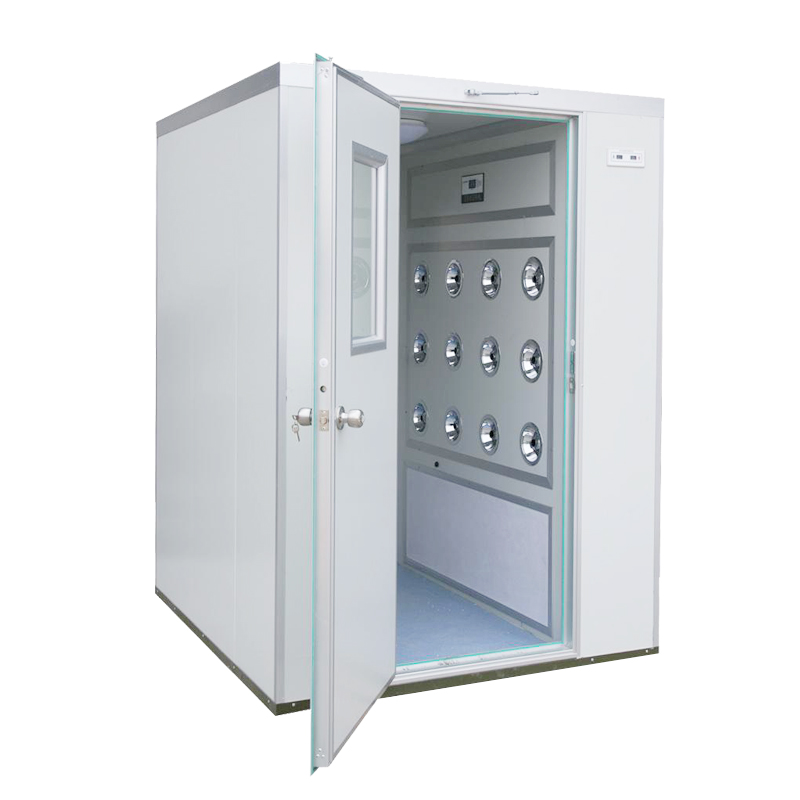

Air showers offer several significant benefits in terms […]
Air showers offer several significant benefits in terms of contamination control, making them a valuable asset in controlled environments such as cleanrooms, laboratories, pharmaceutical facilities, and manufacturing plants. Here are the key benefits of using air showers for contamination control:
Effective Particle Removal: Air showers are highly effective at removing loose particles, including dust, lint, pollen, and other contaminants, from personnel, equipment, and materials. The high-velocity air streams dislodge and carry away particles, preventing them from entering the cleanroom.
Reduced Risk of Cross-Contamination: By removing contaminants from personnel and objects before they enter a cleanroom or controlled environment, air showers help reduce the risk of cross-contamination. This is especially critical in industries like pharmaceuticals, electronics manufacturing, and biotechnology, where product purity is paramount.

Enhanced Cleanroom Integrity: Air showers act as a physical barrier, maintaining the integrity of cleanroom environments. They create a transitional space that separates the controlled interior from the less controlled outside environment, ensuring that only properly decontaminated individuals and items enter the clean area.
Improved Product Quality: Air showers contribute to improved product quality by minimizing the introduction of contaminants that can lead to defects, contamination-related recalls, or compromised research results. This is crucial in industries where product quality and consistency are essential.
Safety and Compliance: Air showers enhance safety by reducing the risk of personnel carrying contaminants into the cleanroom, which could lead to accidents, safety breaches, or compromised research outcomes. They also aid in compliance with regulatory standards and quality management systems.
Optimized Process Efficiency: By preventing contamination-related disruptions and rework, air showers contribute to greater process efficiency and productivity. Industries that rely on cleanroom processes benefit from reduced downtime and increased throughput.
Employee Health and Safety: Air showers help protect the health and safety of personnel by removing potentially harmful particles from clothing and skin. This is particularly important in cleanrooms where exposure to hazardous materials or pathogens is a concern.
Minimized Energy Consumption: Some modern air shower designs incorporate energy-saving features, such as variable-speed fans and occupancy sensors, which can help reduce energy consumption while maintaining effective decontamination.
Customization: Air showers can be customized to meet specific cleanroom requirements, including size, configuration, and airflow patterns. This flexibility allows them to be tailored to the needs of different industries and applications.
Compliance with Standards: Air showers are designed to meet or exceed industry-specific standards and regulations related to contamination control, cleanroom design, and occupational safety.
Long-Term Cost Savings: While air showers represent an initial investment, their long-term benefits in terms of contamination control, product quality, and process efficiency often lead to significant cost savings by reducing the risk of contamination-related setbacks and product failures.
In summary, air showers play a crucial role in contamination control by effectively removing particles and contaminants from personnel, equipment, and materials before they enter controlled environments. Their use enhances cleanliness, safety, and product quality while supporting compliance with industry standards and regulatory requirements.
Our new models offer superb design;competitive prices and their new features give them distinct advantages over similar products from other manufacturers.